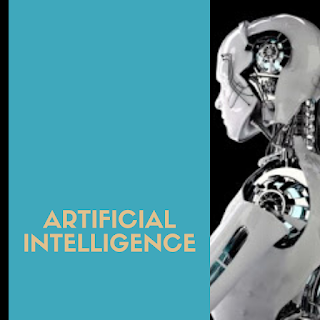ARTIFICIAL INTELLIGENCE AND FAITH
It
is a fact that humanity has reached a degree of scientific and technological
development unprecedented in history. In the field of Artificial Intelligence
(AI), for example, the use of technologies in areas such as health, astronomy,
industry, economy, culture, politics, war is already being observed. Robotics
is already present in operating rooms of hospitals and has helped people with
reduced mobility or even paralysis to walk. But one fact that had an impact on
human relations was the creation, in 2016, of the humanoid robot Sophia, by the
company Hanson Robotics, which is able to recognize faces, reproduce 62 facial
expressions, learn, talk and work with human beings.
This
field of science, Artificial Intelligence, has been the object of philosophical
reflection, since it presents implications, among others, of an ethical and
moral nature. It is remotely linked to the studies of the French philosopher
René Descartes (1596-1650), who was the first to formulate the mind-body
problem in the 17th century. This scholar understood man as divine creation in
dualism soul (mind) and matter. According to Descartes the soul is a spiritual
and eternal entity. Material reality, on the other hand, can be expressed by
quantities that can be mechanically measured.
However,
for scholars of Artificial Intelligence, the mind is not a distinct instance of
the body. In a reductionist view of man, these scholars see him only as a
material organism. Mind would only be a product of the functional organization
of the brain. In this context, one goal of AI is to develop an artificial,
mechanical brain, a thinking machine. Many philosophers, however, understand
that it is too much to call mind a mechanical or electronic process of rules
and answers. Thus, they consider difficult the development of a machine that
has self-awareness, intentionality, will, repentance and other human
feelings.
From
the point of view of Theology, Artificial Intelligence is capable of broad
analysis, taking into account a variable spectrum of considerations and
concepts. Speaking, however, only about the origins, AI is the fruit of that
adamic desire of man to be "like God" (Genesis 3:5). The human being
wants to be God and create a whole world of his own. A material world, where
there is no room for Divinity. Another aspect to be said about AI is that man,
created "in the image and likeness" of God (Genesis 1:26), is endowed
with creativity. Thus, he has the desire to do new things. But his creations
are not "ex-nihilo," that is, "out of nothing" as only God
realizes. Everything he does is from something that already exists.
On
the other hand, it is important to emphasize that the mark of human science is
its imperfection. Its result is never complete and perfect; it is always an
approximation. For example: the remedy that cures a certain problem has side
effects and can cause other damage. Zilles (2016, p.209) states that, according
to the important philosopher of science Karl Popper, "knowledge is always
imperfect, but perfectible. The absolute truth, however, is out of our reach.
all our scientific theories are only attempts to approximate the truth that no
one has". Thus, science, in which man trusts so much, is imprecise and
always bears the mark of corruption: it has its good side and its bad side.
This can be seen, for example, in the use of
nuclear energy. Just as it can be used for good in medicine, it can also be
used for evil in a nuclear war. Thus, it can be inferred that the advance of
science prepares the scenario of the Apocalypse. The prophet Daniel stated that
"at the time of the end" there would be a great search for knowledge
(Daniel 12:4). It is not difficult to conclude that this time is approaching.
The reading of Revelation gives the impression that God will use scientific
advancement to unleash his judgments on the human system (Revelation 6:1-4).
The Bible speaks of a time in which will happen "the destruction of the
heavens by fire, and the elements will melt in the heat" (2 Peter 3:12 and
13). This, however, does not constitute the end, but it is inevitable that it
happens, for it is God's plan to establish a new world order, where an extract
of humanity will live again with Him (Revelation 21 and 22).
Antônio
Maia – M. Div
Copyright



Comments
Post a Comment